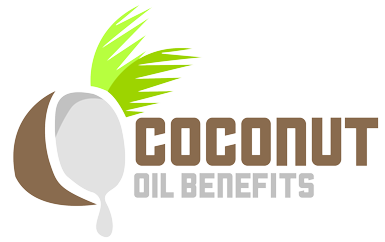Coconut is the nut or fruit of the coconut palm, a member of the Arecaceae or palm family of plants. The edible oil extracted from mature coconuts is used in foods, medicines and industry.
The United States Food and Drug Administration (FDA), World Health Organization (WHO) and Britain’s National Health Service (NHS) warn against high amounts of coconut oil in the diet, mainly due to the oil’s high saturated fat content. However, the conventional advice is often misguided and misleading.
Many medical professionals consider coconut oil an important dietary element, and research indicates it can greatly benefit heart health. According to some studies, coconut oil is helpful for balancing the thyroid hormone, and it can help improve cholesterol levels.
Plant-Based Saturated Fats
Coconut oil consists primarily of saturated fats, triglycerides made up of saturated fatty acids. In fact, the oil is more than 90 percent saturated fats. However, the saturated fatty acids in coconut oil differ from animal-based saturated fats. The chemical composition of plant-based fats lowers cholesterol, an organic fat compound, while animal fats increase it.
Nearly half the saturated fats from unrefined coconut oil contain lauric acid, an essential fatty acid. Lauric acid has been shown to lower harmful levels of fat in the bloodstream while boosting beneficial levels.
Polyunsaturated Fats
In addition to saturated fats, coconut oil contains polyunsaturated fats. These are heart-healthy substances found mostly in seeds and nuts. Polyunsaturated fats help improve cholesterol levels by keeping the arteries elastic and allowing blood to flow freely. Whole foods and unrefined oils are best, as heating and processing damage these fatty acids.
Monounsaturated Fats
Monounsaturated fats are found in various food sources, including high-fat fruits and nuts. In its virgin form, coconut oil contains about six percent monounsaturated fats.
According to medical experts at the Mayo Clinic, monounsaturated fats protect the heart by removing harmful LDL from the artery walls and increasing beneficial HDL levels in the body.
More on LDL and HDL
Low-density lipoprotein (LDL) is a major group of lipoproteins, biochemical particles that contain both proteins and lipids (fats). High LDL levels cause health problems and heart disease.
High-density lipoprotein (HDL) is another major lipoprotein group that transports lipids in the bloodstream. In contrast to LDL, HDL moves cholesterol from the arteries to the liver for re-utilization or excretion. People with higher HDL levels have fewer problems with heart disease.
Cooking with Coconut Oil
Used in food preparation and cooking, coconut oil can be an important part of a heart-healthy diet. The American Heart Association (AHA) says coconut oil can help improve cholesterol levels in foods that are broiled, grilled or baked.
People who replace animal-based saturated fats with plant-based coconut oil help improve cholesterol levels. By lowering these levels instead of increasing them, people can take an active role in preventing and controlling heart disease. Coconut oil can easily be substituted for butter, shortening and other unhealthy fats.







